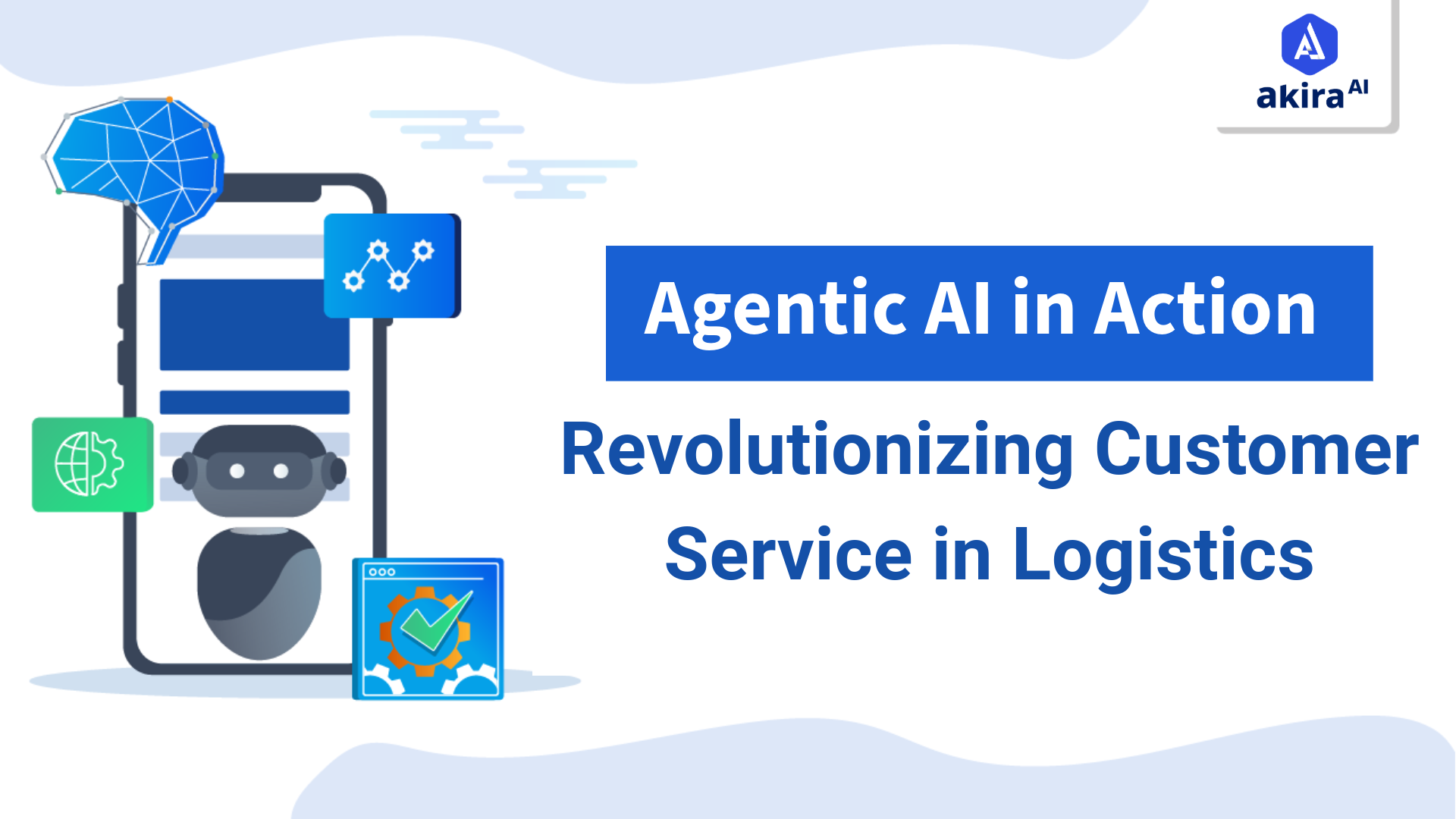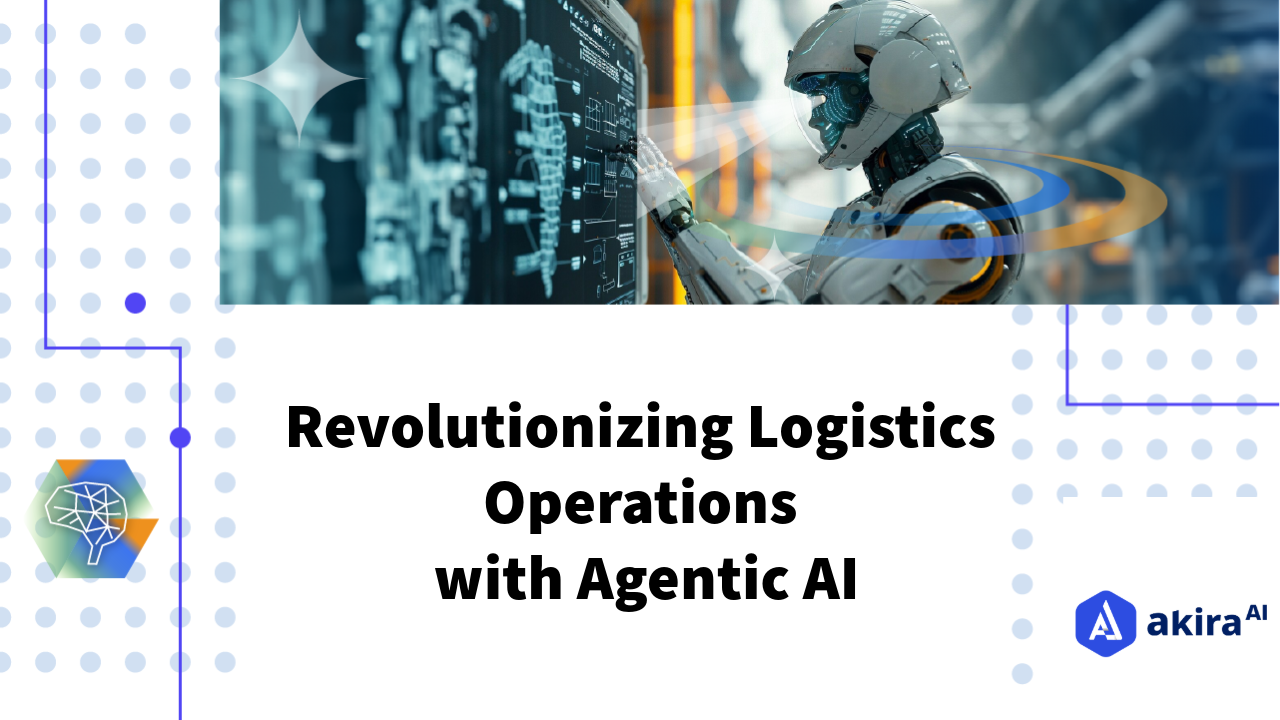Vendor management has become a challenging issue that many organizations try to solve so as to continue being relevant in the competitive business environment. The standardization of processes needs to occur as more and more organizations rely on external suppliers and, therefore, need to adapt to new demands and market requirements.
AI agents for vendor management have emerged as a powerful ally in this endeavor. These agents help organizations make data-driven decisions and strengthen supplier relationships by automating routine tasks and providing actionable insights.
This blog will explore the significant impact of Agentic AI on vendor management, particularly in procurement and logistics, and uncover their operational benefits, use cases, and trends on the horizon.
What is Vendor Management?
Vendor management refers to organizations processes to manage their relationships with third-party suppliers. This includes selecting vendors, reviewing contracts, monitoring performance, and ensuring compliance with the contracts. Coordinating these relationships is valuable as far as giving quality and efficiency with risk concerns in mind.
It is, therefore, to the company's advantage to develop a sound management system that will help them improve their operations. As a result of technological advancement, specialized tools are essential in illuminating the areas that affect visibility and improving the decision-making processes, hence the improved contracts, relations, and service delivery.
A Brief Overview of Vendor Management in Logistics
In the logistics sector, effective vendor management is vital for ensuring smooth operations and meeting customer demands. Organizations must evaluate suppliers not just on cost but also on reliability, service quality, and their ability to adapt to changing market conditions. When the framework of a strong vendor management system is established in companies, it can lead to efficient handling of several logistic matters, such as on-time delivery and inventory.
Moreover, AI-driven insights play a transformative role in this context. These insights enable organizations to analyze supplier performance metrics, forecast potential disruptions, and make proactive adjustments. Improved communication channels foster better collaboration with suppliers, ensuring that both parties are aligned on expectations and deliverables. The application of technology in managing the vendors improves the overall operation, stabilizes the supply chain relations, and thus drives business success.
Traditional Vendor Management Vs. Agentic AI Vendor Management
|
Feature |
Traditional Vendor Management |
Agentic AI Vendor Management |
|
Data Processing |
Manual data entry; prone to errors |
Automated data processing; reduces errors |
|
Supplier Evaluation |
Static criteria; limited adaptability |
Dynamic learning; adapts to new data |
|
Performance Monitoring |
Periodic reviews; reactive approach |
Continuous monitoring; proactive issue resolution |
|
Contract Management |
Manual tracking; often leads to missed deadlines |
Automated alerts; ensure compliance |
|
Decision-Making |
Based on historical data alone |
Data-driven insights with real-time analytics |
|
Risk Assessment |
Reactive risk assessment; often too late |
Predictive analytics; anticipates potential risks |
|
Communication |
Fragmented communication; relies on emails and calls |
Centralized platform; real-time updates and alerts |
How Do AI Agents Facilitate Vendor Management?
AI agents are bringing a revolution in handling vendors as they are autonomous and are delivering intelligent information. Here are six key ways in which they facilitate this crucial function:
-
Supplier Evaluation: These agents evaluate the reliability, cost, and quality of the potential supplying agents. By analyzing historical performance data, they assist organizations in selecting the best vendors, enhancing the overall vendor management process.
-
Performance Monitoring: Agentic AI-based solutions enable constant monitoring of business partners given business risks. Managers are also able to track KPI information in real-time from AI agents to quickly diagnose vendor underperformance and mitigate problems.
-
Risk Assessment: These agents scan the environment beyond the supply chain walls, including global market trends as well as political events, to determine risks with the vendors. Such an approach is excellent for risk management and supports vendor management in procurement.
-
Contract Management: Another advantage is automatic contract renewal as well as compliance checks. These agents give notifications about approaching deadlines and track compliance with conditions to lower the possibility of legal disputes while improving vendor management software.
-
Data-Driven Insights: The AI-driven systems produce analytics to guide decisions regarding vendor choice and management connections. Real-time analysis enables an organization to make decisions that are consistent with its operational objectives.
-
Cost Optimization: These agents establish clear buying trends with the chosen vendor that relate to the possibility of reducing overall expenditure. This assessment assists organizations in renegotiating contracts or aggregating purchases and so improves overall effectiveness.
How does Akira AI optimize Vendor Management?
Organizations require solutions to improve their ability to manage relationships with suppliers effectively and boost organizational performance thoroughly and Akira AI offers several agents to enable it to improve its vendor management. Here are five unique agents utilized by Akira AI:
-
Supplier Performance Agent: This agent is always assessing and reviewing supplier performance indicators including delivery performance, product quality, and communication performance. Real-time capability assists management in minimizing poor performer vendors and making necessary corrective actions to improve the vendor management system.
-
Collaboration Agent: Designed to facilitate communication between organizations and their suppliers, this agent provides a platform for sharing important information and feedback. Streamlining interactions fosters stronger partnerships and ensures that both parties are aligned on expectations and deliverables in the vendor management process.
-
Cost Analysis Agent: This agent compares the costs of various vendors and their offerings in order to determine whether or not cost savings can be made. Reviewing such strategies and indicating where changes may be made increases the effectiveness of an organization’s dealings with vendors and improves its profitability.
-
Compliance Monitoring Agent: This agent is responsible for making certain that every vendor complies with the rules and regulations of the business. It also sets up a more efficient system for compliance checks, which means that compliance issues can be solved in time, protecting the business’s reputation and later – its money.
-
Feedback Analysis Agent: Utilizing NLP, this agent takes in feedback that it receives from vendors and internal parties. It also encourages positive vendor relationships and is used to locate the potential problems, issues, or concerns expressed by consumers and clients
Use Cases of AI Agents in Vendor Management
 Fig 1: Use Cases of Vendor Management
Fig 1: Use Cases of Vendor Management
AI agents play a crucial role in optimizing various aspects of vendor management, providing organizations with innovative solutions to enhance their operations. Here are some key use cases:
-
Supplier Selection: Advanced algorithms analyze multiple factors, including pricing, reliability, and past performance metrics, to recommend the best suppliers. This data-driven approach helps organizations choose vendors that align with their operational goals, ensuring quality service delivery.
-
Performance Monitoring: Continuous tracking of delivery times and product quality enables the identification of underperforming vendors quickly. By analyzing key performance indicators (KPIs), organizations can address issues proactively and maintain high standards across their supplier base.
-
Risk Assessment: External risks are evaluated through the analysis of market trends, geopolitical factors, and economic indicators. From the insights, one can predict a likely disruption in vendor relations and proactively work out how to reduce risks; hence, enhancing the general aspect of vendor management in logistics.
-
Contract Compliance: Automating contract reviews ensures adherence to agreed terms. This not only reduces the likelihood of disputes but also streamlines the vendor management process, allowing teams to focus on strategic initiatives rather than administrative tasks.
-
Invoice Processing: Automation of invoice generation and payment processing improves cash flow management. Reduction of errors requiring manual adjustments as well as prompt payments benefits organizational relations with vendors and financial sustainability.
-
Vendor Relationship Management: Information about vendors and how they perform and communicate also helps in the relations between organizations and their vendors. Increased participation also leads to improved trust, hence cooperation, improving service delivery.
-
Cost Optimization: Comparing the spending habits of an organization across multiple vendors results in the achievement of efficient cost. Reviewing and, in some cases, proposing changes to the pricing model increases profits and the available value gained from vendors.
Operational Benefits of AI Agents in Vendor Management
The implementation of AI offers numerous operational benefits that can significantly impact an organization’s success:
1. Increased Efficiency: Automation reduces time spent on manual tasks, allowing teams to focus on higher-value activities that drive business growth.
2. Cost Savings: Integrated procedures assist in managing the consumption in the operation hence extending financial spending and repartitioning.
3. Improved Supplier Relationships: Improved communication also leads to better relations with the vendors, hence better returns on their relationships.
4. Data-Driven Decisions: Real-time data offering makes it easy to reach prompt decisions on issues to do with vendor management in procurement as well as business goals and objectives.
5. Greater Visibility: Higher vendor performance management increases companies’ responsibility while forcing vendors to identify inefficiencies or problems in their business so customers can achieve more effective vendor cooperation
Technologies Transforming in Vendor Management
The integration of AI agent technologies is revolutionizing vendor management in logistics by streamlining processes and enhancing overall efficiency. Here are five key technologies making an impact:
-
Machine Learning Algorithms: These algorithms analyze historical data to improve supplier selection and performance monitoring. By identifying patterns and trends, they enable organizations to make data-driven decisions that optimize vendor relationships.
-
Natural Language Processing (NLP): NLP technology facilitates better communication between organizations and vendors by automating responses to queries and extracting insights from contracts and communications. This fosters a more collaborative environment and ensures clarity in expectations.
-
Predictive Analytics: AI-driven predictive analytics tools assess market trends and supplier behavior, enabling organizations to forecast demand and potential risks. This proactive approach enhances the vendor management process, allowing for timely interventions when necessary.
-
Automated Workflow Systems: These systems streamline tasks such as order processing, invoice management, and compliance checks, significantly reducing manual effort and the potential for errors. By automating routine tasks, organizations can focus on strategic initiatives rather than administrative burdens.
-
Blockchain Technology: Integrating blockchain with AI enhances transparency and traceability in vendor transactions. This technology can verify the authenticity of products and ensure compliance with contracts, thus strengthening trust and accountability in vendor relationships.
Future Trends in AI Agents for Vendor Management
As technology continues to evolve, several trends are likely to shape the future of AI agents in vendor management:
-
Greater Integration with IoT: Connecting AI agents with Internet of Things (IoT) devices will facilitate real-time tracking of inventory levels and shipments, enhancing visibility and control over logistics operations.
-
Enhanced Predictive Analytics: Future advancements will enable even more accurate predictions regarding supplier performance and risks, allowing organizations to be more proactive in their vendor management strategies.
-
Increased Focus on Sustainability: Organizations will likely prioritize sustainable practices when selecting vendors, supported by data-driven insights from AI tools, ensuring that their supply chains align with corporate social responsibility objectives.
-
Advanced Risk Assessment Tools: Future tools will incorporate more sophisticated algorithms for evaluating vendor risk profiles, enabling better risk management and mitigation strategies.
-
Collaboration Platforms: Enhanced platforms will facilitate better collaboration between organizations and their vendors through integrated communication tools, leading to stronger partnerships that drive mutual success.
Conclusion: AI Agent for Vendor Management
AI Agents are reshaping the field of vendor management by automating key processes, improving decision-making, and strengthening supplier relationships. As more organizations leverage these advanced technologies, they can streamline their operations and gain a competitive advantage in their markets. Adopting these innovations will be essential for businesses aiming to succeed in a rapidly changing environment. By utilizing AI for vendor management, companies can foster stronger partnerships, minimize costs, and respond more adeptly to market fluctuations.
The incorporation of AI agents into vendor management practices marks a pivotal shift in how organizations engage with suppliers. As AI technology continues to advance, its impact on vendor management will expand, creating new avenues for efficiency, cost savings, and enhanced relationships. Organizations that proactively adapt to these changes will be well-positioned for sustained success.

